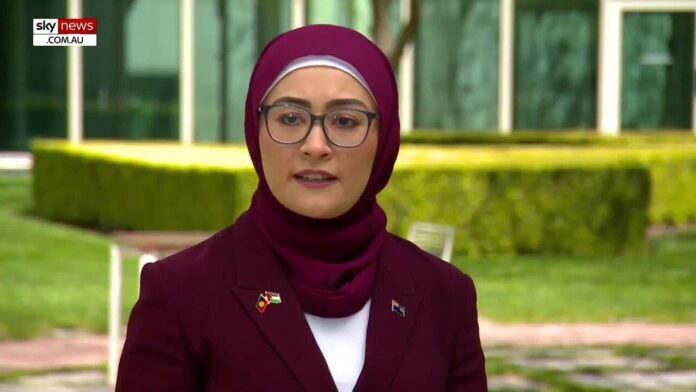Former Labor Senator Fatima Payman deals a critical blow to the government’s landmark environmental reforms, leaving a key deal with the Greens and independents in tatters
In a dramatic turn of events, former Labor Senator Fatima Payman has become a pivotal figure in the collapse of the government’s ambitious environmental reforms. As the Prime Minister’s office prepared for a deal with the Greens and independent Senator David Pocock, it became clear on Wednesday morning that Payman’s decision not to back the bill had undermined the entire agreement.
The environmental overhaul, which had been negotiated over several weeks between Greens leader Adam Bandt, environment spokesperson Sarah Hanson-Young, and Senator Pocock, had seemed poised for a resolution. However, Payman’s last-minute move to withdraw her support shattered those hopes, leaving the government scrambling.
Payman, who had quit the Labor Party earlier this year, made her position clear on Tuesday after intense negotiations over the final details of the legislation. Her rejection of the bill was a critical blow, particularly as the government was under the impression that it had the necessary votes to secure the passage of the reforms.
Embed from Getty ImagesThe Nature Positive reforms, a cornerstone of the government’s environmental agenda, have been heavily opposed by key players in Western Australia’s mining industry and by state Premier Roger Cook. Payman, representing the state, echoed these concerns, signalling her opposition to the bill in its current form.
Sources close to the situation described the moment as a “oh shit” realisation for the Prime Minister’s office, as Payman’s refusal to support the deal meant that the government did not have enough Senate backing to push the reforms through. This unexpected turn of events leaves Prime Minister Anthony Albanese facing significant setbacks, particularly as the bill had been touted as a key part of his environmental legacy.
The collapse of the deal has sent shockwaves through the political landscape, with Labor MPs aligned with environmental causes expressing frustration over the shelving of the legislation. For the Prime Minister, this setback adds to mounting pressure on his leadership, particularly from those within his own ranks who see the environmental reforms as critical to the party’s credibility.
Despite the setback, the government has not entirely abandoned the reforms. There are indications that talks could resume, with the possibility of tweaking the bill to address concerns and secure the necessary support from a broader cross-section of the Senate. Whether a deal can be revived remains uncertain, but the fallout from Payman’s move has sent a clear message to the government: securing meaningful environmental reforms will not be easy.
For now, Payman’s intervention has marked a key moment in the ongoing battle over Australia’s environmental future, leaving the Prime Minister’s office to regroup and reconsider its strategy.
